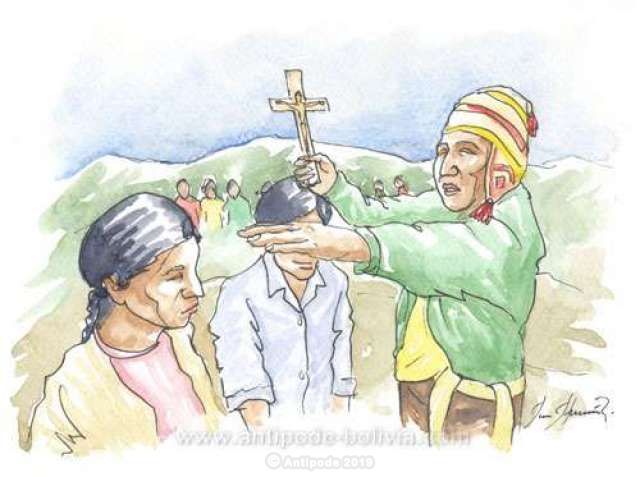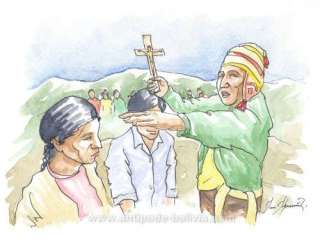

Religion in Bolivia
A lonely word to summarize the religious situation in Bolivia is; syncretism.
The official religion, endorsed by the 2009’s Constitution, is
Catholiscim. The great majority of the population claims to be catholic but in reality,
the fervor degree varies considerably according to people and religions.
From that, Catholicism is, historically talking, a colonization
tool and a way to control a lot of persons by the ruling class. As a
consequence, to be catholic is seen as a favorable element of social prestige,
hence the massive number of people claiming to be catholic (about 78% of the
population).
But concretely, this Christianism is highly colored by local
believes, practices and superstitions. Indeed, it is not rare to see priest
blessing cars, like during the celebration of Copacabana’s Virgen and farmers
go to the mass before to make an Andean ritual with coca leaves and animal
sacrifices.
In the countryside, the Andean world view, where Humans do not
dominate but are an integral element of Nature, and Andean believes, magical,
stay deeply rooted. They venerate the Mother-Earth (Pachamama), the Sun (Inti)
and the Moon (Killa).
The spirit of the mountains, the Apus, protect the villages and
encourage the soil fertility. Bolivian people are often used to fall back on
healers, curanderos, rather than
doctors coming from the western medicine. Superstitions and other magical
explanations are still very present to explain mysterious and inexplicable
situations.
Simultaneously to these traditional believes, it is to notice
the emergence of new protestant movements such as Evangelists or Adventists,
predicting the end of the world and other disasters to come. But these
movements remain to cities and do not reach the countryside.



